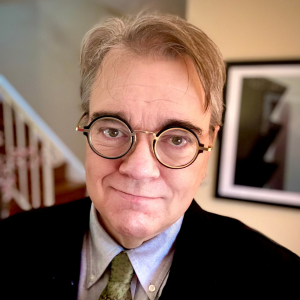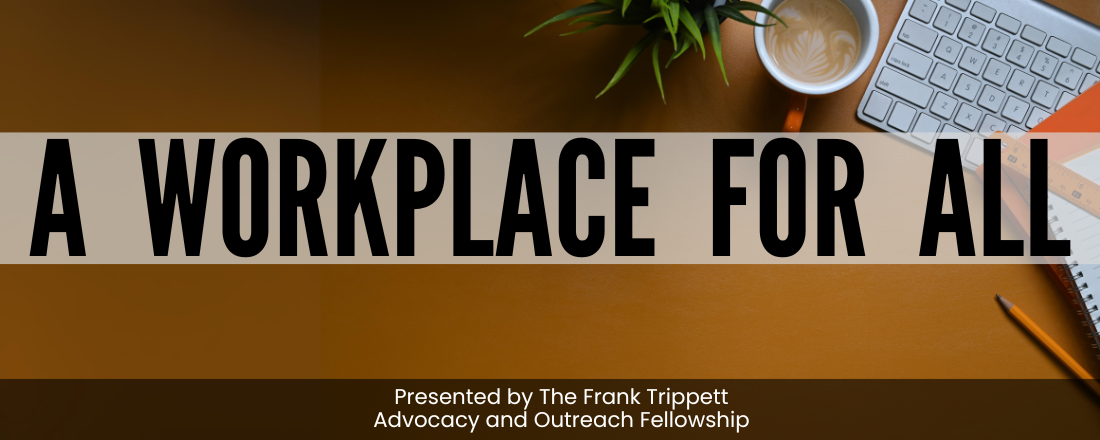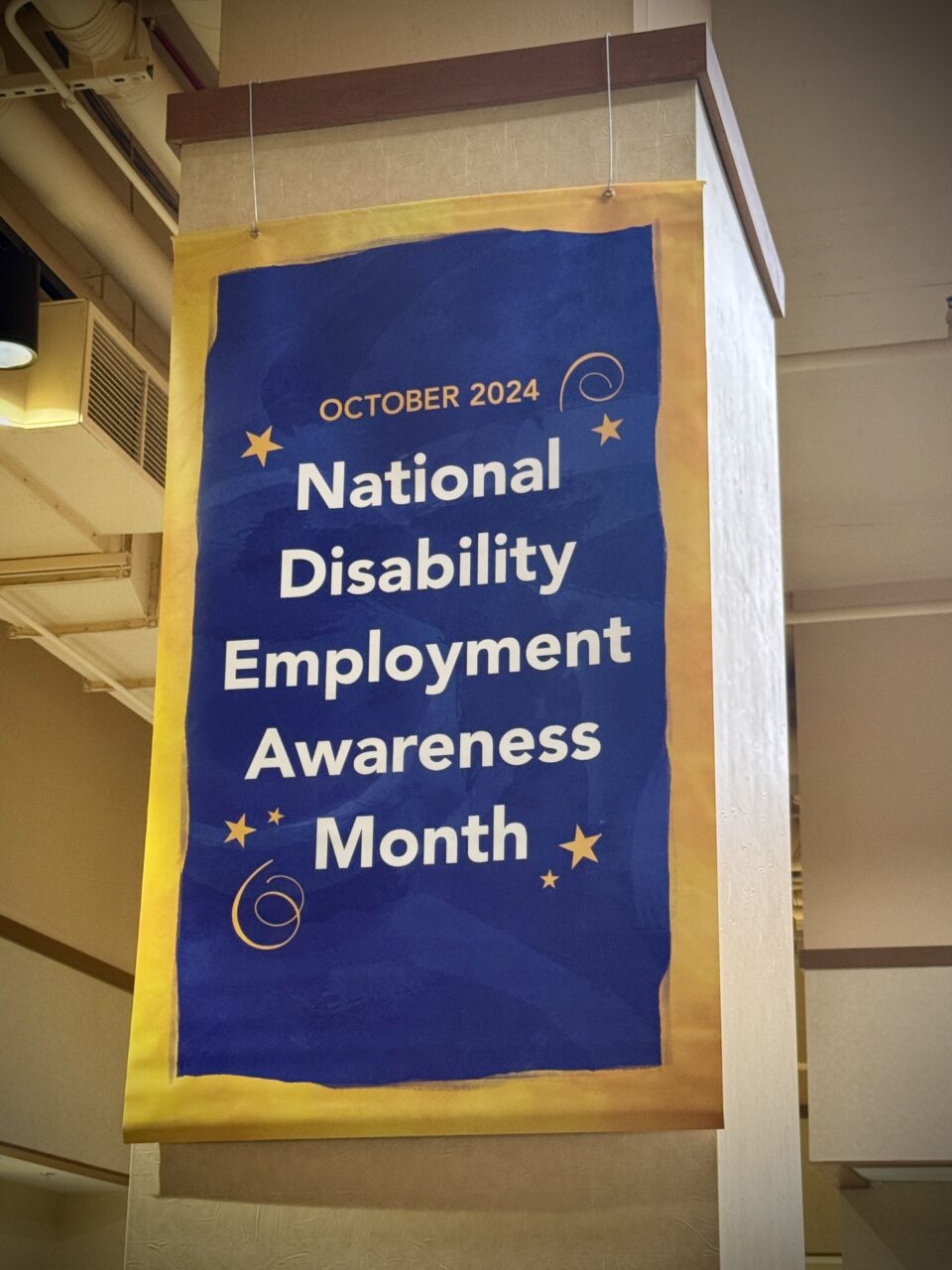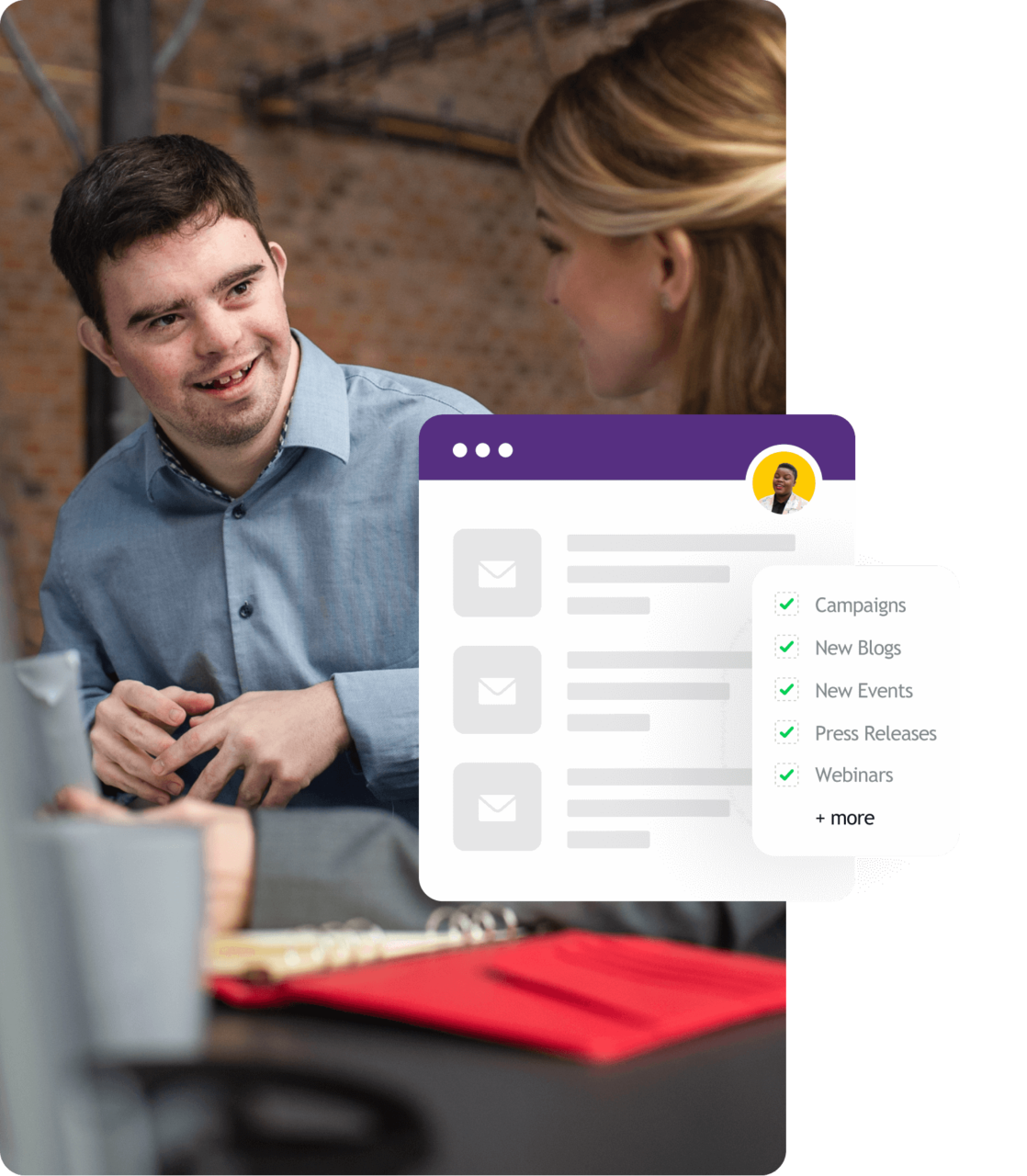
Rob Hudson is a Frank Trippett Advocacy and Outreach Fellow, and Community Outreach Associate for The Arc of Northern Virginia. Rob’s advocacy on behalf of his daughter, Schuyler, who has a rare disorder called polymicrogyria, has guided his personal philosophy for the past twenty years.
A Workplace for All
“We may not think about it, but we’re all a part of something larger than any single one of us—and our work is one of the forces that connects us. And when we make sure that everyone feels their work is respected…we reinforce the trust between us that makes everything in our lives possible.” – former President Barack Obama, “Working: What We Do All Day”
I’m always glad when disability issues are recognized annually. Awareness months can seem strange to those of us who live in this world twelve months out of the year, but I think there’s real value in shining a light on the various aspects of the disability experience. If we’re going to have success in building a truly inclusive world for those we care about with intellectual and developmental disabilities (IDD), the first step will involve weaving their challenges and aspirations into the greater fabric of our society.
October, then, is celebrated as National Disability Employment Awareness Month, and as far as important aspects of disability life go, this is a huge one. When we strive for a positive work/life balance, we do so with the understanding that our work is central in our lives, from our sense of participation in society to the meaningful contribution we make in that society.
If our work helps to build our place in a larger world, the possibilities for people with disabilities to participate in a meaningful work life becomes one of the foundations of an inclusive philosophy.
The employment numbers for people with disabilities have always been disheartening, and consistently so. Even in the days following the COVID pandemic, when employers were desperate to rebuild their workforce, the statistics for disability employment were stubbornly frustrating.
Why is this so difficult? Why does the work world struggle so much to find roles for our loved ones? You don’t have to look very hard to find spaces that are being carved out, mostly by small businesses with vested interests in the disability community. Many of these businesses in the area have worked closely with The Arc of Northern Virginia, and it has been a real joy to get to see them at work. Places like Jake’s Ice Cream (and Jake’s Gourmet Popcorn), Cameron’s Coffee & Chocolates, and Bitty & Beau’s Coffee hire people with disabilities either exclusively or mostly so. Many of these and other companies have been recognized by The Arc of Northern Virginia’s Commitment to Employment of Persons with Disabilities Awards. The list of winners and nominees is a testament that things can be better.
It’s not just local, either. A few years ago, I was in Asheville, North Carolina visiting family, and while out shopping, we stumbled across an extraordinary store with the fantastic name Madam Clutterbuckets Neurodiverse Universe. Owned and staffed by people with a variety of disabilities, it sells artwork, clothes, games and literature created by the disability community. I thought at the time that if I can walk around a downtown street corner in a faraway town and suddenly find myself in a store like that, maybe things aren’t so bad.
The reality of this employment model, however, is more complicated. The waiting list for employment at these companies can be daunting, and the number of people with disabilities who are able to be hired represents a very small percentage of those looking for work. These small businesses usually operate on a very narrow margin, leaving them vulnerable to market forces and worse, if they are not subsidized. As a result of the storm damage from Hurricane Helene, for example, Madam Clutterbuckets has been struggling to stay open, even as they continue to provide support to the disability community in Asheville in the form of much-needed supplies and logistical coordination.
Large companies who have a measurable impact on employment rates are beginning to see the advantages of hiring people with intellectual and developmental disabilities, but it’s a slow process. There’s a traditional hiring model that most companies depend on, in which potential employees are seen as specific pieces to be inserted into a company’s structure as needed. It represents a problematic matrix for people whose neurology differs from the typical job candidate. They don’t easily function as cogs in an inflexible machinery.
Companies could adjust their hiring and training practices to evaluate potential employees for their particular strengths and interests, and determine how they might best fit in and benefit the organization. It’s harder work, to be sure, but the potential rewards are immense. They’d suddenly find access to a wealth of human resources who have inexhaustible drive and enthusiasm. And putting employees with IDD in forward-facing positions where they interact with the public demonstrates a company’s commitment to inclusion. All this, while furthering the process of building authentic relationships with people with disabilities who turn out to be not so different after all.
It’s up to our community, all of us, to make that change happen. Are you a person with a disability who’s looking for a job? Visit with the local small businesses you frequent, places where the owners are more likely to know you and take a chance. Are you a hiring manager? Consider instituting a hiring preference for people with disabilities, and take a very public position (in social media, on your website and job search sites) on your inclusive policy in your hiring practices. Do you own or represent a large company? Consider making disability hiring a part of your strategic plan. Are you interested in being part of the solution but are unable to hire additional staff at your place of business? Consider developing a volunteer program to allow people with disabilities to get valuable experience as they begin their journey towards employment.
Inclusion is both complicated and at the same time very, very simple. The simple part says that everyone has a right, a basic human right, to access opportunities for meaningful, autonomous participation in the world around them; to enjoy, as we repeatedly say, a Life Like Yours. The complicated part involves how to make that happen, and the work required to put those processes in place. But the potential for improving the quality of workplaces while enriching the lives of people with disabilities makes it all worthwhile.




